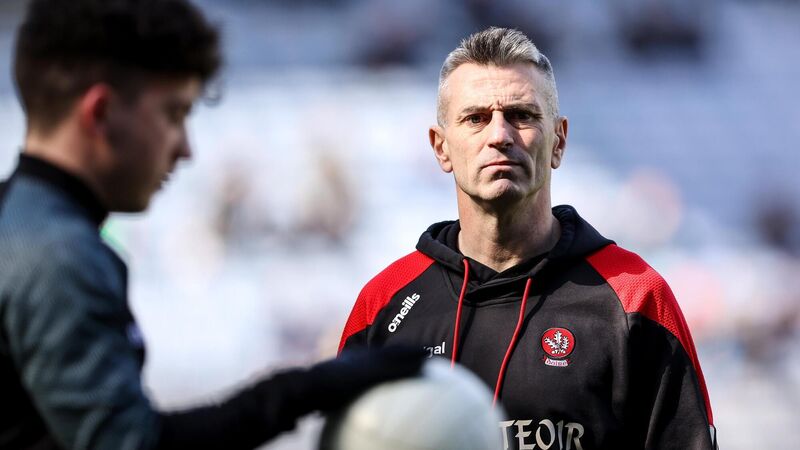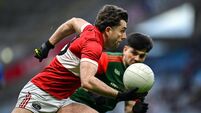Talking points: Rory Gallagher facing old friends, Monaghan's poor record

WATCHING ON: Derry Manager Rory Gallagher. Pic: INPHO/Ben Brady
As Clones was a happy blur of red and white chaos and delight at the end of last year’s Ulster final, a mobile TV camera tracked Rory Gallagher’s movements moments after the final whistle. Gallagher just cooly and calmly walked over to commiserate with a couple of Donegal players before casually walking back to the sideline before the camera angle flashed elsewhere.











